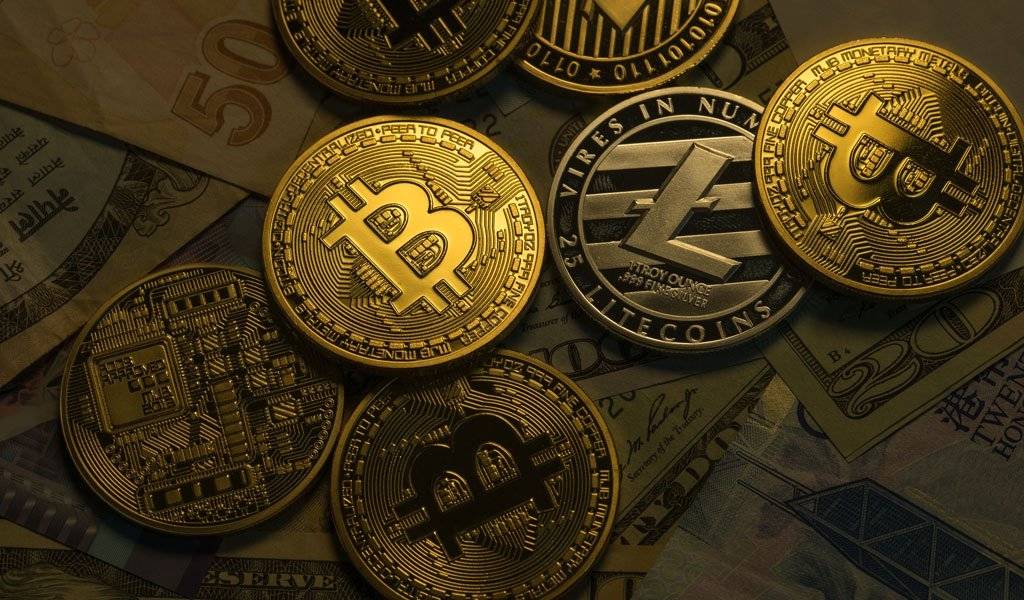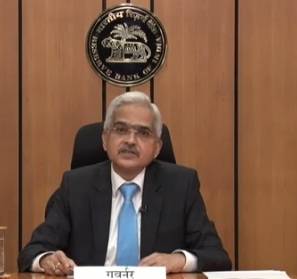Early this month, the Monetary Policy Committee (MPC) hiked the benchmark rates by 40bps to 4.4 per cent owing to the inflation at six per cent upper range for four months and Das said it was done to avoid a steep hike in June…reports Asian Lite News
India’s central bank is mulling further rate hikes, said its Governor Shaktikanta Das.
He also said the Reserve Bank of India (RBI) will not allow the rupee to depreciate and prevent volatility in the currency market.
In an interview to the CNBC TV18 channel, Das also said the RBI will release the new forecast for inflation next month.
He said the repo rate will be increased, but declined to say by what percentage.
Early this month, the Monetary Policy Committee (MPC) hiked the benchmark rates by 40bps to 4.4 per cent owing to the inflation at six per cent upper range for four months and Das said it was done to avoid a steep hike in June.
He said the measures taken by RBI will have a sobering effect on retail prices.
According to Das, the current account deficit will be comfortably managed this year.
On the crypto currency, he said the RBI has been cautioning against it and there are questions on how to regulate it.

He said crypto currency will undermine the financial, monetary and macroeconomic stability of the country. The RBI has conveyed its position to the Central government and the latter is more or less in sync with the former.
Last week, top cryptocurrency exchange Coinbase quit India operations owing to “informal pressure” from the Reserve Bank of India (RBI), its CEO Brian Armstrong has revealed for the first time.
The US-based and Nasdaq-listed exchange had halted payments via unified payments interface (UPI) mode on its app in India last month.
In the company’s earnings call late on Tuesday, Armstrong said that the company disabled the UPI “because of some informal pressure from the Reserve Bank of India”.
“There are elements in the government there, including at the Reserve Bank of India, who don’t seem to be as positive on it. And so they — in the press, it’s been called a ‘shadow ban’, basically, they’re applying soft pressure behind the scenes to try to disable some of these payments, which might be going through UPI,” Armstrong told analysts.
The crypto exchange reported its first net loss as a public company of $430 million in the first quarter this year.
The revenue dropped 27 per cent to $1.17 billion, down from $1.6 billion in the first quarter of 2021 and monthly users were also decreased by more than 19 per cent to 9.2 million, as the global crypto market goes through a mayhem.
Armstrong said that the RBI’s move “may be actually in violation of the Supreme Court ruling, which would be interesting to find out if it were to go there”.
“Now the press is talking about it in India. Now there’s meetings happening that are going to talk about how we get to the next step. So that’s generally our approach with international expansion,” he added.
The exchange had launched its crypto trading services in India on April 7.
The goods and services tax (GST) council is reportedly mulling a 28 per cent tax on cryptocurrencies.
The Ministry of Finance has already imposed a 30 per cent tax on profits made from the transfer of crypto assets and non-fungible tokens (NFTs).
India distinguishes between cryptocurrencies and crypto assets, and Union Finance Minister Nirmala Sitharaman during the Union Budget 2022-23 in February announced a 30 per cent tax on income from these transactions, which includes a 1 per cent deduction at source.
Her proposal of levying a 30 per cent tax on crypto earnings came into effect on April 1.

The 28 per cent GST will be in addition to the 30 per cent income tax on earnings from crypto asset transactions.
There is also 1 per cent TDS (tax deducted at source) on transactions in such asset classes above a certain threshold. Gifts in crypto and digital assets are also taxed.
A new section called ‘115BBH’ has been added in the Income Tax Act, 1961, to tax digital assets.
During a trip to the US last month, Sitharaman raised doubts about the size of the cryptocurrency market worldwide and stressed the need for a regulatory mechanism acceptable to all countries to prevent its use to launder money and fund terrorism, which, she said, were big concerns for India.
“I think the biggest risk for all countries across the board will be on the money laundering aspect and also on the aspect of currency being used for financing terror,” Sitharaman said at a seminar hosted by the International Monetary Fund (IMF).
The minister had earlier raised doubts about the size of the cryptocurrency market. “We are not sure about the veracity of the data, which says the volume is this much or that much. Those numbers are questionable.”
Meanwhile, Bitcoin dropped nearly 2.7 per cent on Monday and was trading at $33,531.
The world’s largest cryptocurrency by market value has now fallen by 50 per cent since its peak in November last year.

Leave a Reply